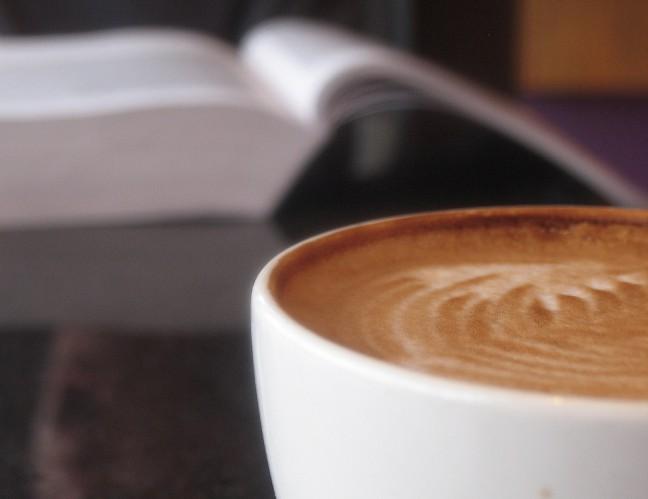With the weather warming up, the sun shining brighter and the walk to class becoming less and less dreadfully chilly, many students begin to long for treasured summer days. But first, students must stay focused for a while longer, as finals are quickly approaching. Everyone has their own ideas about how to best prepare for exams. While some choose exercise to keep them energized and focused, others rely on the ever-glorified cup of coffee to start their mornings, afternoons and sometimes even long nights of studying.
Even if coffee isn’t your drink of choice, most of the dining halls and markets around campus carry a plethora of other caffeinated beverages such as energy drinks, teas, sodas and energy shots. Many of these bottles don’t just have a little bit of caffeine, but they’re often loaded with more than one or two servings.
Experts suggest limiting caffeine consumption to no more than 400mg of caffeine per day for adults. This is equal to about four cups of regular coffee, 10 sodas or two energy shots. Keep in mind that a standard cup of regular coffee is often much less than the size of coffee drinks students order, potentially leading to much more caffeine consumption than intended. Perhaps even more startling is the warning that adolescents should keep their caffeine intake to no more than about 100mg per day, only a fourth of the maximum for adults. Although college students often refer to themselves as adults because of all of the freedoms they embrace, and a majority of them technically are, many are still considered adolescents biologically, as their minds and bodies are still developing.
Caffeine is known as one of the most widely-used drugs in the world. That’s right, it’s a drug. Many people do not even acknowledge the fact that this everyday substance is a drug, yet it has effects on the human mind and body that strongly support this classification. Many of us rely on coffee and other caffeinated drinks to get up in the mornings or keep us going throughout the day. Although caffeine is a reliable source of immediate energy, it is also unfortunately known to leave people feeling extremely fatigued after the initial effects have worn off. In order to avoid the crash, many people choose to constantly consume caffeine throughout the day to keep themselves energized.
Although the jolt from caffeine is definitely highly desirable to many college students, moderate to heavy caffeine consumption (sometimes even light caffeine consumption for those who are not regular consumers) commonly leads to unwanted side effects including insomnia, high blood pressure, irritability, nausea and perhaps the most impactful side effects: anxiety and nervousness. With all the stress balancing of classes, busy schedules, homework, eating, exercising, socializing, extracurricular activities and just about any other activity imaginable, the last thing students need to deal with is extra anxiety.
Especially around exam time, students should try to limit their caffeine intake to avoid feeling increasing anxiety. Some studies even report that those who have entirely eliminated caffeine from their diets actually feel more energized. This is perhaps due to the higher quality of sleep they get each night, in addition to more natural means of obtaining sufficient energy. If you can’t seem to completely kick the caffeine out of your life, at least try to limit your intake to a healthy level in order to improve chances of avoiding bigger problems than simply feeling a little bit sleepy in the mornings.
The good news is that several alternatives to caffeine exist, and many are easily accessible, more natural and healthier overall. A few of these options include Vitamin B12, apples, going for a jog, eating breakfast and even getting a good night’s sleep (although this may be a tough one to achieve, considering the hectic lives of us Badgers).
Bottom line: we all know caffeine is a large part of everyday functioning for many of us, but before we reach for the next double shot espresso or five hour energy, we should at least consider the other healthier options to provide us with the energy we crave.
Payden White (pwhite4
[Photo by Flickr user nerissa’s rin]














